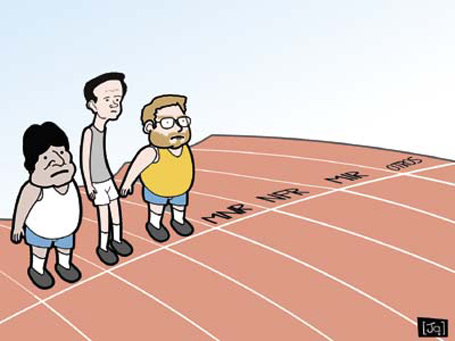… is the following game.
The game is entirely in English and it comes with 6 CD-roms. The game is not brilliant, but it’s always nice to have a look at how PC games were 10 years ago, so…
Who’s gonna be the winner?
According to the Longman Grammar of Spoken and Written English (1999) the list of the top 10 verbs of the English language is:
Can you guess these three verbs? Send me your comments and see if you win this little competition. Oh, one clue: it’s not ‘to be’ nor ‘to have’ and they are all irregular verbs!

In the vocabulary section of this unit we have seen some English proverbs. A quick google search will help us get more information on this aspect of language that seems to be on the decline:

 The BBC’s ‘bitesize’ offers revision for most subjects at different stages. Today, I would like to highlight their history articles.
The BBC’s ‘bitesize’ offers revision for most subjects at different stages. Today, I would like to highlight their history articles.
Check them out, listen to them and read the scripts:
Past simple or present perfect? That’s a difficult situation in some sentences. In the introduction to unit 7 I gave you a list of words that can immdediately tell you if you need a past simple or a present perfect. They are the following:
| PAST SIMPLE |
PRESENT PERFECT |
| AGO (… 5 years ago = fa cinc anys) | FOR (… for two months = durant dues setmanes) |
| IN + time reference (… in August, in 2004, in winter) | SINCE (… since 2005 = des del 2005) |
| YESTERDAY (ahir) | YET (encara no) |
| LAST (… last week = la setmana passada) | JUST (tot just, acabar de) |
| ALREADY (ja) | |
| EVER? (algun cop?) | |
| 0 (cap paraula) |
However, as you learn more and more English, you might find examples of sentences that contradict this rule. Don’t worry. Languages are complex and full of exceptions.
Practice what you know with these activities:
You can practice lots of reported speech sentences here (click ctrl + f and type “reported”). Students from 2nd batx. B did this exercise on Tuesday. The solutions are a click away on the suggested answers sections.
Unfortunately, results haven’t been as good as expected. Out of 22 students, there are:
The class average is 4,6 and it can be subdivided in:
However, these results include those from students who do not come to the classroom, something which distorts the average results of the students who do come to school every day.
The results for the second term are very similar to those from the first term.
The class average is 5,51 and it can be subdivided in:
These results show that, whereas students are working very hard this year and their dossiers are complete and correct, the exams are still under 5 and should improve.
3rd ESO grade students are invited to post links to exercises that can help you practice ‘will’ or the first conditional.
You can start searching on the following addresses: